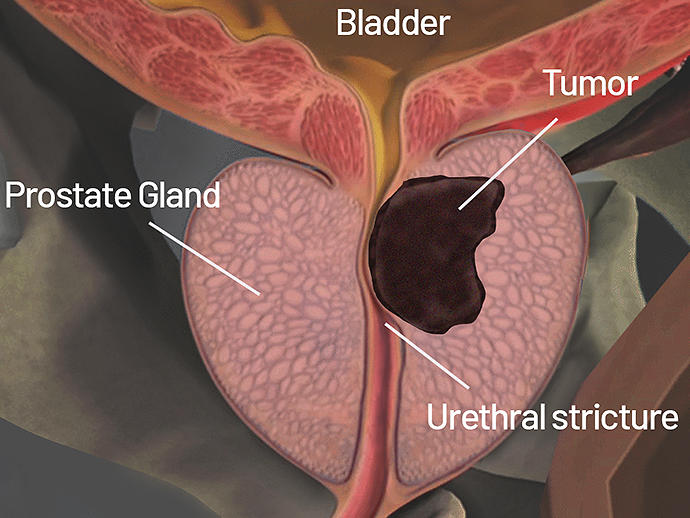Prostate cancer is one of the most common forms of cancer that affects men. It is estimated that one in eight men will be diagnosed with prostate cancer during their lifetime. Despite advances in medical research, the causes of prostate cancer are not fully understood. In this article, we will explore the possible reasons why men may develop prostate cancer.
10 Warning Signs of Prostate Cancer
Age Age is one of the most significant risk factors for developing prostate cancer. The risk of developing prostate cancer increases as men get older. It is rare for men under the age of 40 to develop prostate cancer, but the risk increases significantly after the age of 50.
Prostate Cancer: Symptoms, Causes, Treatment, and More
Genetics Prostate cancer may be inherited. Men who have a family history of prostate cancer are at a higher risk of developing the disease. The risk is even higher if the affected family members were diagnosed at a younger age. The BRCA1 and BRCA2 genes are also linked to an increased risk of prostate cancer.
Hormones Hormones play a critical role in the development of prostate cancer. The male hormone testosterone is produced by the testicles and is essential for the growth and function of the prostate gland. However, high levels of testosterone may increase the risk of prostate cancer.
Lifestyle factors Several lifestyle factors may increase the risk of developing prostate cancer. A diet high in red meat and dairy products may increase the risk of prostate cancer. Conversely, a diet high in fruits, vegetables, and whole grains may decrease the risk. Obesity and lack of physical activity are also associated with an increased risk of prostate cancer.

Environmental factors Exposure to certain environmental factors may increase the risk of prostate cancer. For example, men who are exposed to high levels of certain chemicals, such as cadmium or polychlorinated biphenyls (PCBs), may have a higher risk of developing prostate cancer. Exposure to radiation may also increase the risk.
Race and ethnicity Prostate cancer affects men of all races and ethnicities, but it is more common in African American men. African American men are more likely to develop prostate cancer, and they are also more likely to be diagnosed at an advanced stage. The reasons for this are not fully understood, but genetics, access to healthcare, and lifestyle factors may all play a role.
Inflammation Inflammation may also contribute to the development of prostate cancer. Chronic inflammation of the prostate gland may increase the risk of developing prostate cancer. Infections and other conditions that cause inflammation may also increase the risk.
Medical history Men with a history of certain medical conditions may be at a higher risk of developing prostate cancer. For example, men who have had a sexually transmitted infection, such as gonorrhea or chlamydia, may have a higher risk. Men who have had a previous diagnosis of prostate cancer may also be at an increased risk of developing the disease again.
Exposure to carcinogens Exposure to certain carcinogens may increase the risk of developing prostate cancer. For example, men who work in certain industries, such as agriculture or manufacturing, may be exposed to chemicals that increase their risk of developing prostate cancer.
Prostate-specific antigen (PSA) levels High levels of prostate-specific antigen (PSA) in the blood may indicate the presence of prostate cancer. However, high PSA levels can also be caused by other conditions, such as benign prostatic hyperplasia (BPH). Men with high PSA levels may need further testing to determine whether they have prostate cancer.
Prostate inflammation and infection
Prostate inflammation and infection may also contribute to the development of prostate cancer. Chronic inflammation of the prostate gland, also known as chronic prostatitis, may increase the risk of developing prostate cancer. Additionally, certain types of infections may also increase the risk of prostate cancer.
Medications and supplements
Some studies have suggested that certain medications and supplements may increase the risk of prostate cancer. For example, long-term use of nonsteroidal anti-inflammatory drugs (NSAIDs) may increase the risk, while vitamin E supplements may actually increase the risk of developing prostate cancer.
Exposure to endocrine-disrupting chemicals
Endocrine-disrupting chemicals (EDCs) are chemicals that can interfere with the body’s hormone system. Some studies have suggested that exposure to certain EDCs, such as bisphenol A (BPA), may increase the risk of developing prostate cancer.
Inherited gene mutations
Inherited gene mutations may also increase the risk of developing prostate cancer. Mutations in genes such as BRCA1 and BRCA2, which are known to increase the risk of breast cancer in women, may also increase the risk of prostate cancer in men.
Radiation exposure
Exposure to radiation, such as from radiation therapy for other types of cancer, may increase the risk of developing prostate cancer. Additionally, men who were exposed to atomic bomb radiation may also have an increased risk of developing prostate cancer.
In conclusion, while the exact causes of prostate cancer are not fully understood, there are several known risk factors that can contribute to its development. Men who are at a higher risk of developing prostate cancer should be aware of these risk factors and take steps to reduce their risk. Additionally, regular prostate cancer screenings can help detect the disease early when it is most treatable.


